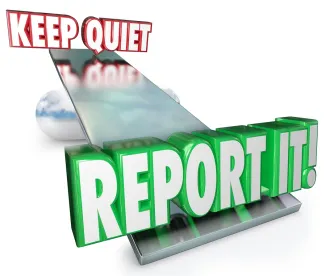The statute of limitations provisions for the federal False Claims Act (FCA), 31 U.S.C. § 3729 et seq., are not artfully drafted. That was a rare point of consensus among the litigants and justices last week, as the U.S. Supreme Court heard oral argument in the matter of Cochise Consultancy, Inc. et al. v. U.S. ex rel. Hunt. At issue was 31 U.S.C. § 3731(b), which provides,
A civil action under [the False Claims Act] may not be brought –
-
more than 6 years after the date on which the violation of [the FCA] is committed, or
-
more than 3 years after the date when facts material to the right of action are known or reasonably should have been known by the official of the United States charged with responsibility to act in the circumstances, but in no event more than 10 years after the date on which the violation is committed, whichever occurs last.
FCA claims, of course, can be brought by the U.S. Department of Justice. 31 U.S.C. § 3730(a). When DOJ declines to initiate an action, claims can also be brought by certain private parties in the name of the United States—that is, by “relators,” who are often former employees or other whistleblowers. 31 U.S.C. § 3730(b). In the latter circumstance, DOJ can intervene at any juncture, and in all events, the lion’s share of the proceeds from a prevailing FCA lawsuit go to the United States (though the relator can recover up to 30% of the damages as well as costs). 31 U.S.C. § 3730(b)–(d).
All parties agree that regardless of who initiates an FCA civil action—DOJ or a private relator—at a minimum, the six-year limitations period of 31 U.S.C. § 3731(b)(1) applies. Likewise, all parties agree that if DOJ brings an FCA claim, then the limitations period may be extended to up to ten years post-violation under 31 U.S.C. § 3731(b)(2), if late discovery of the violation does not enable compliance with the six-year rule. But is the extension (or “equitable tolling”) provision of subpart (b)(2) available to a private relator who brings a claim without the involvement or intervention of DOJ? The Courts of Appeal have split on this question, with the Fourth and Tenth Circuits having previously held that subpart (b)(2) applies only when DOJ initiates or intervenes in a suit, and the Eleventh Circuit in Cochise Consultancy holding that (b)(2) applies also to relator-initiated suits when DOJ has not intervened.
Though there is inherent peril in reading Supreme Court tea leaves, the justices’ questions at the Cochise Consultancy oral argument suggest that the Court is inclined to adopt the Eleventh Circuit view. Put another way, virtually every Supreme Court justice seems sympathetic to the view that the 31 U.S.C. § 3731(b)(2) equitable tolling provision—allowing as much as ten years for the filing of an FCA suit—should be available for private relators as well as for DOJ.
The Cochise Consultancy Case
Cochise Consultancy seems tailor-made to test the applicability of Section 3731(b)(2). Cochise is a security services firm and government subcontractor that performed work on a Department of Defense contract in Iraq and Afghanistan, deactivating munitions and performing related services in 2006–07. The relator, Billy Joe Hunt, a former employee of Cochise’s affiliate, alleged that the contract was secured corruptly through a series of bribes and misrepresentations in 2006. But Hunt did not file his FCA claim until late 2013, well more than six years after the alleged misconduct. (Cochise’s opening Supreme Court brief mentions, tantalizingly, that Hunt was in prison during the interim years for “his role in a separate kickback scheme.”) DOJ declined to file suit or to intervene in this case, and so the defendants moved to dismiss the action as barred under Section 3731(b)(1)’s six-year statute of limitations.
Hunt conceded that his claims would be barred under Section 3731(b)(1), but he urged the trial court to sustain them under subpart (b)(2). In the absence of Eleventh Circuit precedent, the U.S. District Court for the Northern District of Alabama followed the Fourth and Tenth Circuit rule, deemed Section 3731(b)(2) unavailable to a private relator such as Hunt, and dismissed Hunt’s claims. However, the Eleventh Circuit reversed, holding that the District Court’s restrictive interpretation of subpart (b)(2) had no basis in the text of the statute.
Challenging the Eleventh Circuit’s “hyper-literal reading of the statutory language,” Cochise and its parent company petitioned for certiorari, urging the Supreme Court to adopt the Fourth and Tenth Circuit rule. They contended, among other things, that inasmuch as the subpart (b)(2) equitable tolling provision references the government’s (constructive) knowledge of a violation, the provision should be interpreted contextually to apply only to cases directly involving the government. Petitioners also noted the practical difficulties of defending a case ten-plus years after the alleged misconduct, and the potential for abuse should private plaintiffs (as opposed to the DOJ) be empowered to “sandbag” defendants with stale claims.
Oral Argument
By virtually all accounts, the Supreme Court justices were unmoved. Their vigorous pushback to the petitioners’ argument seemed to resonate on two main points—with each of the Court’s traditional ideological “wings” embracing a separate argument in favor of subpart (b)(2)’s broad applicability.
On the one hand, Justice Ginsburg challenged the very rationale for distinguishing between DOJ-initiated and relator-initiated cases. She posited that “the United States [is] in some sense a party even if it hasn’t intervened,” noting that the relator sues on the United States’ behalf, that an FCA case cannot be dismissed or settled without DOJ approval, and that the United States retains the bulk of the proceeds in the event of a prevailing FCA claim. Justice Sotomayor echoed the point, observing that the FCA gives the government the option of letting a relator prosecute a claim in its stead, and that it would be inconsistent with the statute’s structure and purpose to hamstring the government with a narrower limitations period if it decides to avail itself of that option. Justice Kagan appeared to agree, and presented petitioners’ counsel with a string of practical questions—What if the United States intervenes in the middle of the case? Does the statute of limitations then change?—seeming to bely her view that it would be untenable to distinguish between different types of FCA claims.
Justice Gorsuch led a different vein of questioning, querying how the statute’s text could enable any such distinction to begin with. After all, both subpart (b)(1) and subpart (b)(2) apply to “civil action[s] under section 3730” (i.e., under the statute encompassing both the FCA’s relator and government right-of-action provisions). Justice Kavanaugh seemed all the more adamant that the statute means what it says. Barring ambiguity, absurd result, or scrivener’s error—none of which Justice Kavanaugh seemed inclined to find—he indicated that there was no basis to read the statute of limitations provisions in the “tortured” way that petitioners suggest.
If there was a silver lining for petitioners at oral argument, it was Justice Alito’s apparent concession that the case presented a “statutory interpretation dilemma.” Alone among the justices, Justice Alito seemed to accept that there was substantial ambiguity in Section 3731(b), and awkwardness—if not absurdity—insofar as subpart (b)(2) might literally be read to equitably toll limitations for a relator based on a third party’s (the government’s) state of knowledge. Justice Alito seemed by far to be the most receptive audience to petitioner’s context-driven argument that subpart (b)(2) should be limited to government-litigated FCA cases.
Of course, if the other justices rule as their questioning suggests, that could be small comfort to companies seeking to defend against relators’ belatedly presented claims.





 />i
/>i

